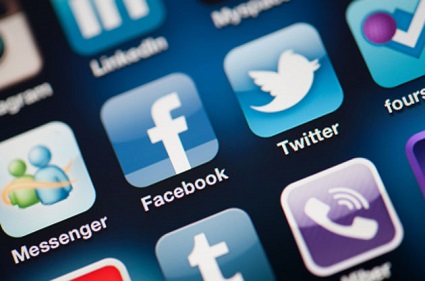
“I would never fall for a scam.”
“Scams are so obvious.”
“No way scammers will get me.”
Any of that sound familiar? With so much attention being put on scammers these days, people are well aware of what not to do to get involved. Society is constantly being warned about phishing scams, internet scams, and avoiding links from unknown sources. So what do the crooks do? They find a new game plan. Here are a few examples of how you can be scammed on social media without even realizing it:
1. Your Facebook profile. The site is set up to connect you with people around the world who are like minded. It isn’t meant to aid criminals but in a way, that’s exactly what it does. Your profile might include information like the year you graduated high school, your favorite movies, and the name of your spouse, kids or other family members, and maybe even your date of birth and where you work! It includes archives of statuses and pictures you share. Maybe you even post where you are and when, letting the world know when you’re home and when you’re not. Without even realizing it, you could be sharing everything a criminal needs to hack into a financial account or much worse.
2. You like a lot of pages. There are literally millions of pages on Facebook. Some are completely legit. Others have incredibly malicious intents. By liking pages you may not be 100% sure about, you are subjecting your news feed to possible scams. This could be everything from a page farming scheme to a cool new video (which happens to actually be a virus.) Even accidentally, you could click on a link that installs a virus on your computer, or lets a criminal access your private information.
3. You share photos. With Instagram, Twitter and Facebook, sharing photos with friends and family is easier than ever. There are privacy settings that help you choose who can see these but are you using them? Is your profile picture public? Never under estimate the type of photo a scammer will steal and what for – not to mention geo-tracking that is possible if your GPS is turned on.
4. You meet new people. Meeting new people is what social media really is all about right? You connect with new friends via trending topics on Twitter. You join private groups on Facebook. Soon these people might feel like family. Don’t mistrust every person you come into contact with but be skeptical. Watch out for the tragic stories and never send money to a stranger. And be very cautious of anyone you end up meeting in person, especially if in an intimate or romantic setting.
5. Linkedin to the world. Linkedin can be a great way to network, meet new people in your industry, and even find a new career opportunity. There’s no question about the power and benefit of the professional social networking site of Linkedin. But, how many people are you connected to? Are those 1500 people really who they claim to be, or have they connected to you to learn more about you and your company? Maybe they are now using your resume and assuming your identity? Or, maybe they will use your information to scam someone else at your company, or to propose a fraudulent investment opportunity? Keep your profile private, and only share what is needed to maintain basic communication. A criminal can do serious damage with just your resume and photo. Share wisely.
6. Google Maps to your home. Once a criminal has connected with you on social media, and read and taken all the data that you have to share, and he knows where you work, and when you’re not at home (thanks to your sharing of your beach vacation photos), he can now proceed to use Google Maps to view your home, and even get directions to wipe our your belongings while you’re away.
If you’ve met someone online that you feel could be a risk, or someone you’re considering meeting in person for a relationship, protect yourself with a discreet background check to verify the person.
The idea that you possibly have privacy on the internet is mostly false. The less privacy you have, the more you open your family up to fraud. No, you can’t hide in your closet for the rest of your life but you also don’t have to be so forthcoming online. Social media has a time and place. Use it wisely.
C. Wright
© 2014 Wymoo International
![]()
© Copyright 2014 Wymoo International. All Rights Reserved. This content is the property of Wymoo International, LLC and is protected by United States and international copyright laws.